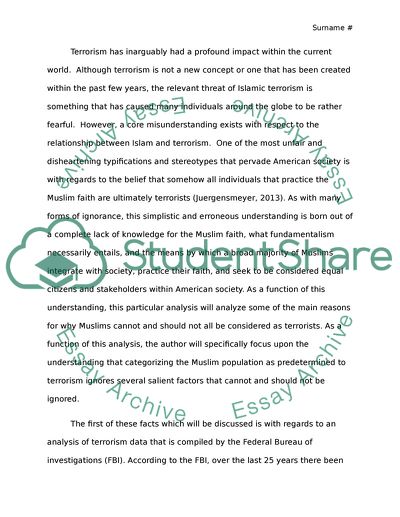Cite this document
(“The Muslim as a Terrorist: A Societal Misconception of the Realities Essay”, n.d.)
The Muslim as a Terrorist: A Societal Misconception of the Realities Essay. Retrieved from https://studentshare.org/social-science/1634761-this-is-a-research-essay-that-can-explore-any-topic-in-the-history-of-western-society-within-the-chronological-parameters-of-this-course-roughly-between-the-years-1789-and-2000
The Muslim as a Terrorist: A Societal Misconception of the Realities Essay. Retrieved from https://studentshare.org/social-science/1634761-this-is-a-research-essay-that-can-explore-any-topic-in-the-history-of-western-society-within-the-chronological-parameters-of-this-course-roughly-between-the-years-1789-and-2000
(The Muslim As a Terrorist: A Societal Misconception of the Realities Essay)
The Muslim As a Terrorist: A Societal Misconception of the Realities Essay. https://studentshare.org/social-science/1634761-this-is-a-research-essay-that-can-explore-any-topic-in-the-history-of-western-society-within-the-chronological-parameters-of-this-course-roughly-between-the-years-1789-and-2000.
The Muslim As a Terrorist: A Societal Misconception of the Realities Essay. https://studentshare.org/social-science/1634761-this-is-a-research-essay-that-can-explore-any-topic-in-the-history-of-western-society-within-the-chronological-parameters-of-this-course-roughly-between-the-years-1789-and-2000.
“The Muslim As a Terrorist: A Societal Misconception of the Realities Essay”, n.d. https://studentshare.org/social-science/1634761-this-is-a-research-essay-that-can-explore-any-topic-in-the-history-of-western-society-within-the-chronological-parameters-of-this-course-roughly-between-the-years-1789-and-2000.


